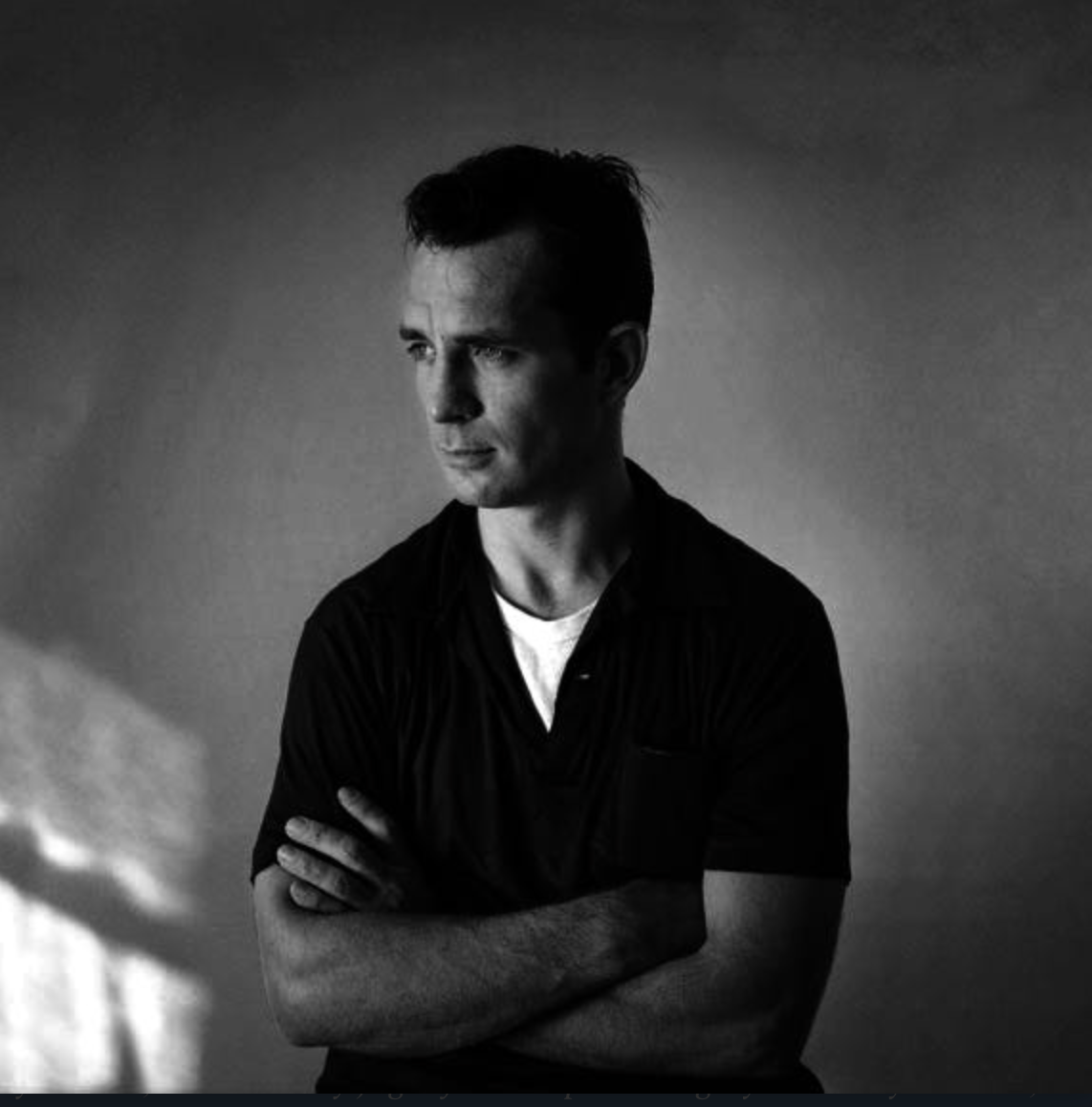Kerouac and the Disciplined Life
“One fast move or I’m gone,” I realize, gone the way of the last three years of drunken hopelessness you cant learn in school no matter how many books on existentialism or pessimism you read, or how many jugs of vision-producing Ayahuasca you drink, or Mescaline take, or Peyote goop up with – that feeling when you wake up with the delirium tremens with the fear of eerie death dripping from your ears like those special heavy cobwebs spiders weave in the hot countries, the feeling of being a bent back mudman monster groaning underground in hot steaming mud pulling a long hot burden nowhere, the feeling of standing ankle deep in hot boiled pork blood, ugh, of being up to your waist in a giant pan of greasy brown dishwater not a trace of suds left in it – The face of yourself you see in the mirror with its expression of unbearable anguish so hagged and awful with sorrow you cant even cry for a thing so ugly, so lost, no connection whatever with early perfection and therefore nothing to connect with tears or anything […]
“One fast move or I’m gone.”
— Jack Kerouac, Big Sur, 4
I think of Kerouac often. The youth read him and want to be him, but they miss his point for the stories of the wild beat, the ramblin’ man of vice and excess — sounds fun, I suppose, when one is young.
But read him deeply and you will find a spiritual writer, a lost soul scrounging for salvation, or Nirvana, or anything but the hell of his own vices.
The passage above is from Big Sur. Big Sur, where he went into the woods with his “hopeful rucksack” and a “hopeful medal of St. Christopher” to try and free himself from himself, from alcohol, from sexual escapades, from slavery to desire.
His life is a tragic antidote to the belief that the lures of the body are worth the price. Kerouac tells us from the inside that such pleasures are fleeting and empty, that their value is mirage, that too much of them may leave one hopelessly entangled in a hell of his own creation. He tells one why a disciplined life is choiceworthy — why he would have chosen it himself, had he the strength. His was a tragic life, one to pity despite the beauty he created, one to learn from, to keep in mind.
